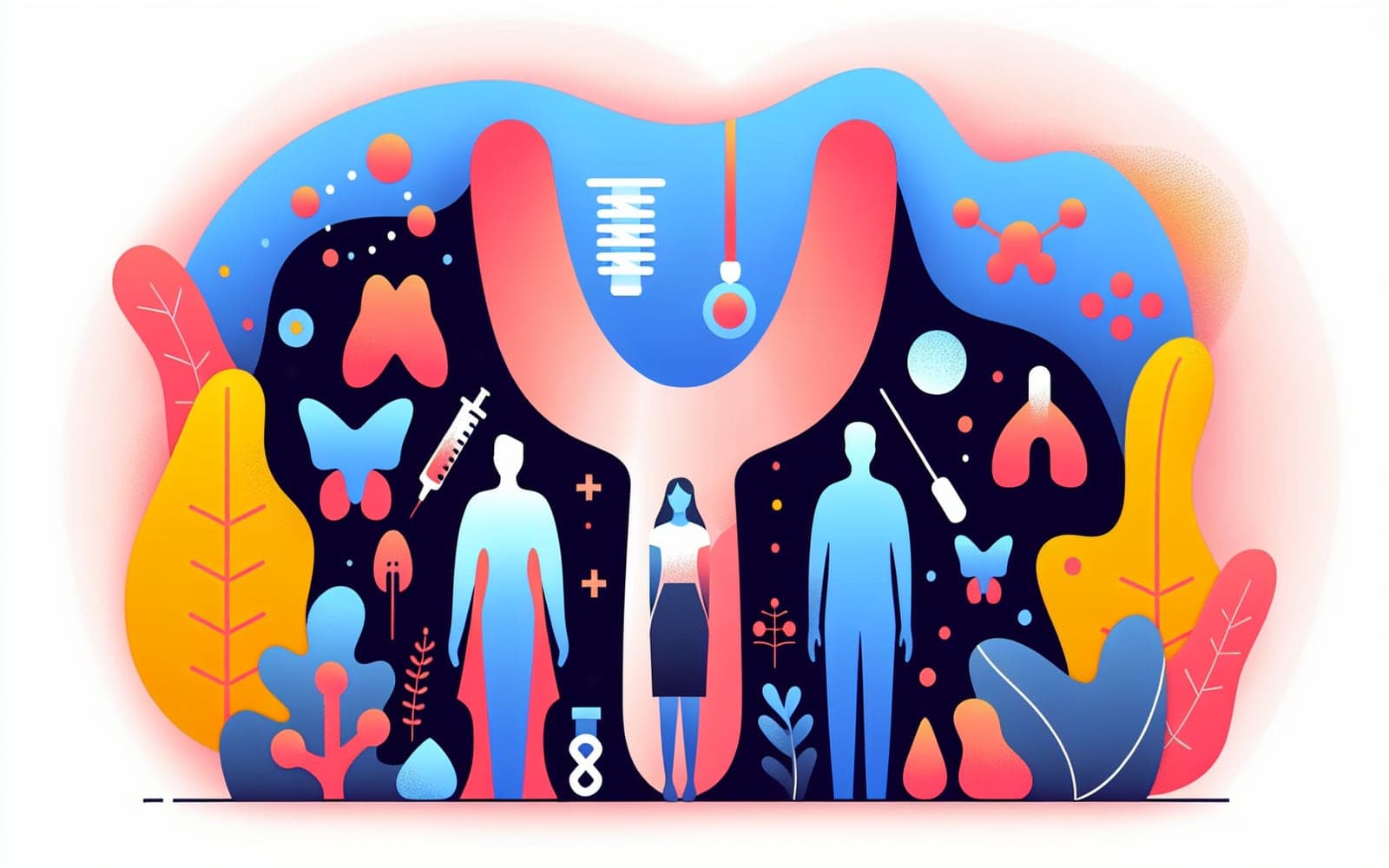Are You at Risk for Hypothyroidism?
Are You at Risk for Hypothyroidism?
Why It Matters
Hypothyroidism can sneak up on you if you're in a high-risk group. This article uncovers who is most at risk and why it's crucial to stay informed.
Contents
- Who is Most at Risk?
- Impact of Lifestyle and Medical History
- The Role of Genetics
Who is Most at Risk?
Women, especially those over the age of 60, are more likely to develop hypothyroidism. People with a family history of thyroid disease or those with autoimmune disorders are also at increased risk. Understanding these risk factors can help in early detection and treatment.
Impact of Lifestyle and Medical History
Lifestyle factors like poor diet or exposure to certain medications can increase the risk of hypothyroidism. A history of neck radiation or thyroid surgery also raises the likelihood. Being aware of these risk factors can lead to proactive health measures.

The Role of Genetics
Genetics play a significant role in hypothyroidism risk, with those having relatives with thyroid issues being more susceptible. Genetic predispositions can make some people more prone to developing the condition, emphasizing the importance of family medical history.
FAQs
Who is at higher risk?
Women over 60 and those with family history are at higher risk.
Can lifestyle affect risk?
Yes, poor diet and certain medications can increase risk.
Does genetics play a role?
Genetics significantly influence hypothyroidism risk.
The Bottom Line
Knowing your risk factors for hypothyroidism can lead to early intervention and better health outcomes.
Additional References
- Walsh JP, Bremner AP, Feddema P, et al. Thyrotropin and thyroid antibodies as predictors of hypothyroidism: a 13-year, longitudinal study of a community-based cohort using current immunoassay techniques. J Clin Endocrinol Metab 2010; 95:1095.
- Kajantie E, Phillips DI, Osmond C, et al. Spontaneous hypothyroidism in adult women is predicted by small body size at birth and during childhood. J Clin Endocrinol Metab 2006; 91:4953.
This article has been reviewed for accuracy by one of the licensed medical doctors working for Doctronic.











